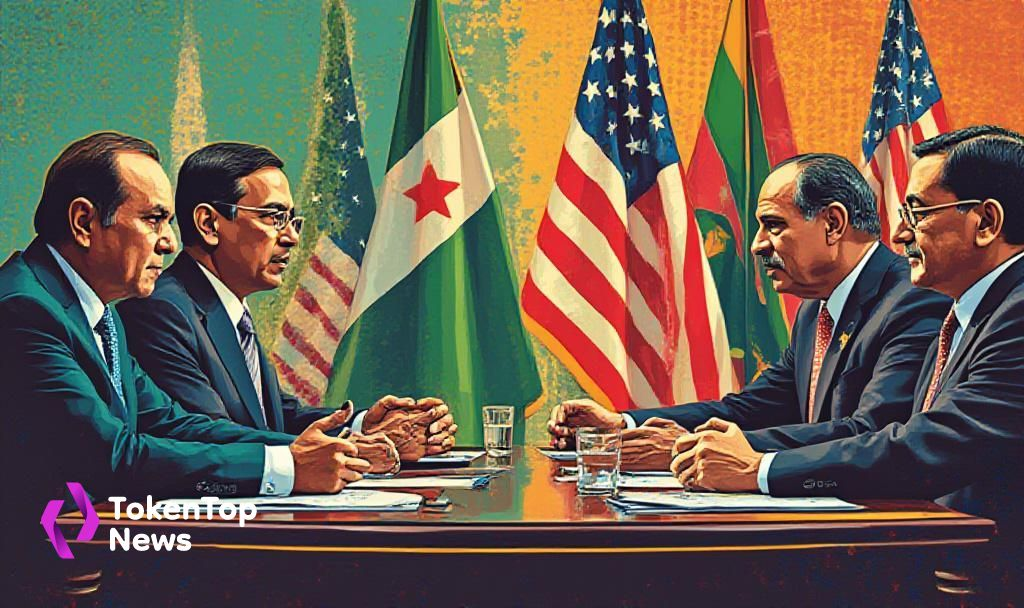Pakistan and US Begin Crucial Reciprocal Tariff Negotiations
- Pakistan and US engage in tariff negotiations.
- Tariffs could hurt Pakistan’s export sector.
- Potential $1.1 billion annual losses for Pakistan.

This negotiation is crucial for Pakistan, potentially affecting its economy and export industry. The talks aim to resolve tariff concerns and explore new bilateral trade opportunities.
Formal discussions have started following the Trump administration’s potential steep tariffs on Pakistani goods. Key figures include Muhammad Aurangzeb, Pakistan’s Finance Minister, and Ambassador Jamieson Greer, US Trade Representative. Muhammad Aurangzeb stated, “Both sides expressed confidence in advancing these negotiations for successful conclusion at the earliest.” source.
Negotiations could significantly impact Pakistan’s economy, as it faces potential 29% tariffs on exports to the US. This development raises concerns about the country’s trade surplus and economic stability.
The tariffs, alongside a proposed zero-tariff trade agreement, could reshape Pakistan’s trade relationship with the US. The talks have sparked varied market reactions, highlighting the financial importance of successful outcomes.
Both governments are expressing optimism for productive talks. However, concerns about the tariffs possibly causing economic damage persist, stressing the need for a timely resolution of the trade dispute.
The financial, regulatory, and economic implications are profound. Historical trends suggest that similar US tariffs have led to complex global trade dynamics. Successful negotiations could pave the way for enhanced bilateral trade relations.



